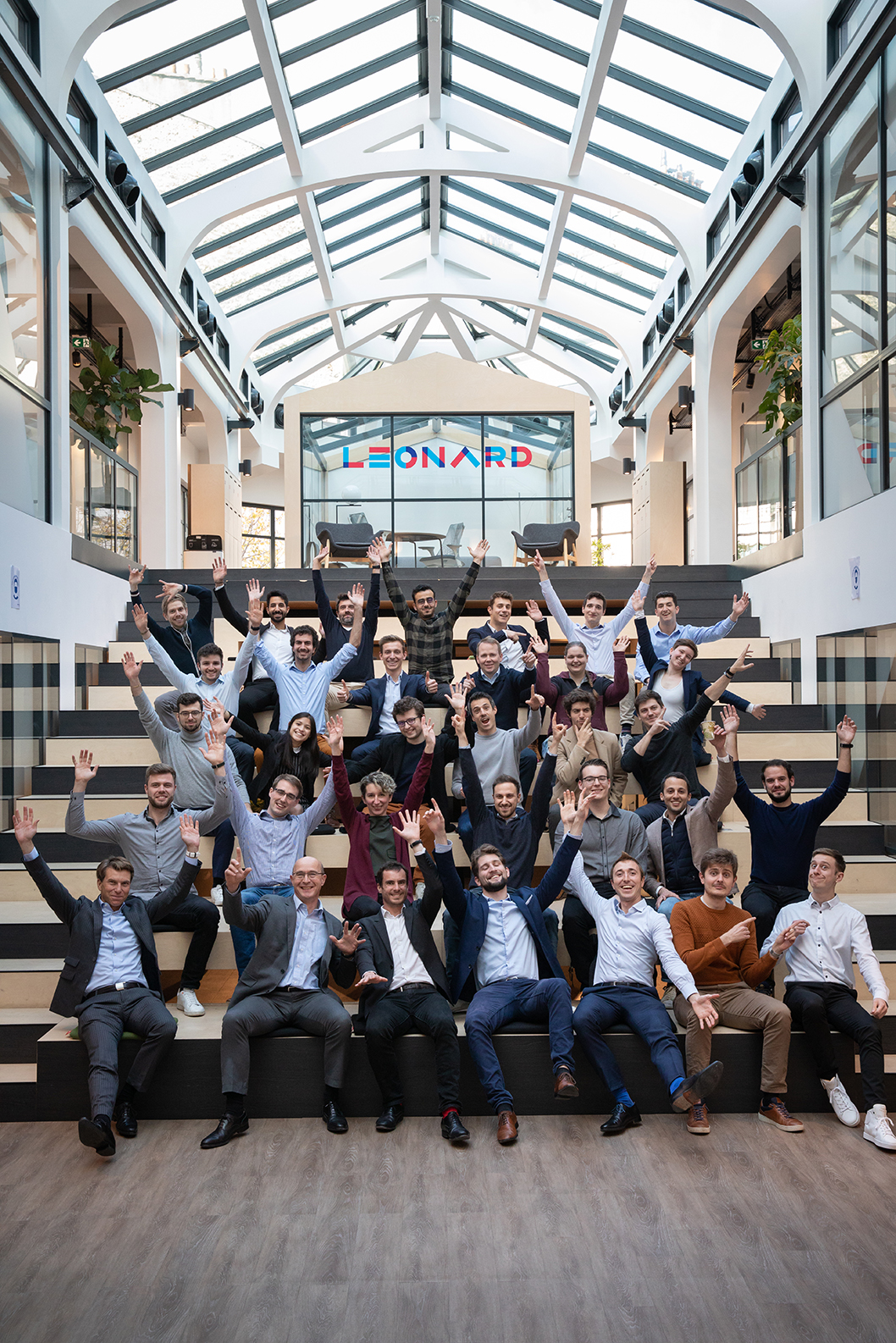This year, the artificial intelligence program shares two objectives:
- to support VINCI entities in the design and development of artificial intelligence projects likely to reveal a potential for growth or to anticipate a market transformation. Leonard is committed to working alongside the member companies of the programme to carry out projects that will be industrialised.
- internalising project management skills by integrating VINCI employees (France, Austria and Portugal) into Leonard’s management team. The objective is thus to decentralise the process and to increase the skills of group employees in the technical management of AI projects.
Of the 20 projects supported during the first two promotions, 17 have now reached “industrial” scale and 3 projects have led to the creation of new business units.
Fifteen new projects supported in 2022
Leonard welcomes 15 new projects for its 2021-2022 class. All the major fields of AI are represented, with projects in generative design, image recognition, prediction and natural language processing for the maintenance of infrastructure and industrial machinery, anticipation of calls for tender, optimisation of the carbon impact of buildings, security, interpretation of technical documents and even interpretation of human behaviour.

These new projects involve more than 80 members of VINCI Energies, VINCI Construction, Eurovia, VINCI Immobilier and VINCI Concessions companies. Employees newly integrated into the programme will validate the concepts and technical feasibility of their projects during an initial one-and-a-half month phase before embarking on a four-month incubation phase, if the feasibility and business criteria are met.
Since 2020, AI has been mobilised on…
- Predictive maintenance for transport systems / VINCI Energies
- Predictive maintenance for industry and infrastructure operation / VINCI Construction – VINCI Concessions – VINCI Energies
- Optimisation of aircraft carbon emissions / VINCI Concessions
- Productivity analysis / VINCI Construction
- Prediction of business drift, financial forecasting and competitive positioning / VINCI Energies – VINCI Construction
- Generative design for industrial design / VINCI Energies – VINCI Construction
- Logistics optimisation / VINCI Energies
- Geophysical soil analysis / VINCI Construction
- Operation of telecom infrastructures / VINCI Energies
- Improvement of operational safety / VINCI Construction – VINCI Energies
The AI programme as seen by the employees who have followed it!
A look back at the 20 projects supported since 2020
>> Cohort 2021
NEO Schedule
Automation of the planning and national distribution of technical resources for maintenance interventions according to their skills, intervention time, travel time and availability of spare parts.
>> Learn more about the project
Conveyor Belt
Use of images provided by drones flying over a mineral conveying infrastructure in large mines to optimise operations. This includes the rapid detection of structural anomalies such as misaligned support elements, which can lead to costly stoppages.
FAIber
Visual identification of fibre optic equipment on site from a smartphone to provide non-expert operators with all the maintenance data or operations to be carried out on the targeted station. The aim is to synchronise and rationalise all the data concerning a station in order to facilitate the work of the operators and limit the number of trips to the database to look for missing information.
PredicTram
Exploitation of public transport system supervision data (ticketing, cameras, etc.) to offer an enhanced solution combining predictive maintenance and optimisation of the scheduling of maintenance operations to improve service quality.
LGV Tours-Bordeaux line
Modelling and understanding of the long-term degradation process of the track geometry, thanks to AI algorithms, to propose the best maintenance plan at all times and optimise very costly renewal operations. The aim is to produce hybrid degradation models based on the experience of the teams, which are empirical, and the data produced by the line, which are real, and to constantly arbitrate on the best way to carry out maintenance.
>> Learn more about the project
Hopital Facilities
Exploiting the information collected by IoT sensors (telemetry data) on hospital assets to improve facilities management.
>> Learn more about the project
Anticipating the financial drift of companies
Early identification of companies that are at risk of underperforming financially and projects that may not perform as well as their initial budget.
Markis AI
Anticipation of bidding tensions in the German market by predicting the likelihood of competitors participating in a bidding process based on the bidding history of bidders. In addition, the prediction of the response price of the competitors allows to position oneself in the most accurate way.
City&You
Automatic calculation of a mutability score for a plot of land identified by an estate agent.
LAIgthing
Automatic generation of lighting system plans for buildings, taking into account regulations, commercial and environmental impact at each stage of the project (price, design, etc.). The aim is to reduce design times and optimise construction prices.
>> Learn more about the project
E-cable
Automated design of cable routes for industrial installations, taking into account regulations and commercial criteria (costs, network quality, etc.)
VolcAIno
Translation of magnetic, electromagnetic and radiometric data acquired by large-scale land surveys into information that improves the analysis of geophysicists for the interpretation of geological layer types.
>> Cohort 2020
Synapse
Helping VINCI companies to accelerate and improve their projects by using Generative Design solutions complemented by artificial intelligence algorithms.
Chronsite
Automatically monitoring construction sites through chrono-analysis using deep learning and computer vision.
Pateu and Robert
Automatically generate Autocad plans of historical monuments thanks to a combination of computer vision and deep learning.
Lisea-Mesea
Predicting the evolution of runway geometry thanks to AI and taking advantage of predictive maintenance to optimise the lifespan of the Sud Europe Atlantique (SEA) high-speed line.
Customer Satisfaction
Predicting and improving customer satisfaction at an airport using AI.
Taxi-Time
Leveraging AI algorithms to accurately predict aircraft take-off times based on all airport data, minimising fuel consumption and the airport’s carbon impact.
Infrastructure Management
Improve infrastructure management through better prediction of pavement degradation.
SprinkIA
Optimise the creation of sprinkler networks, from the sales proposal to the production line, using reinforcement learning algorithms.